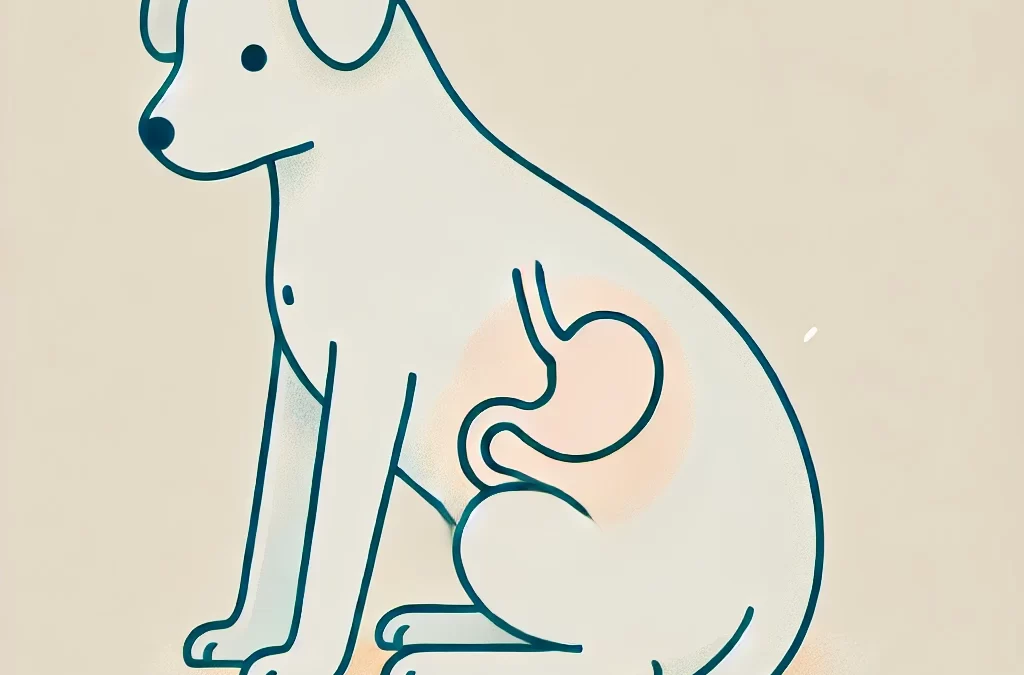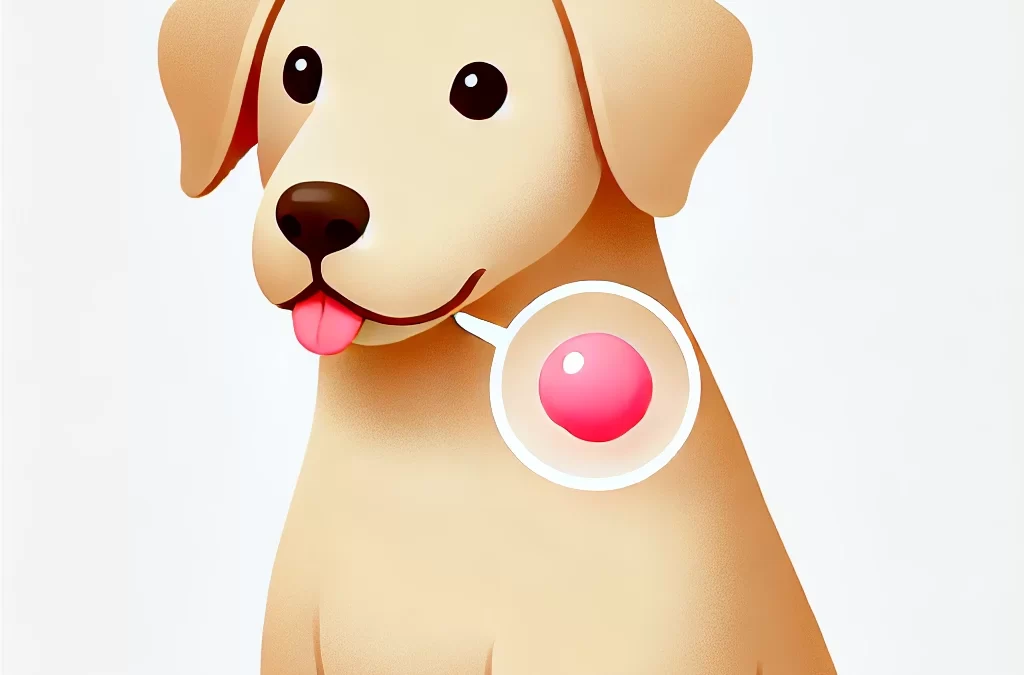
經過 TCMVET | 2024 年 11 月 11 日 | 狗癌症和腫瘤
在心愛的狗身上診斷出脾臟腫瘤可能會令人心痛,因為這些腫瘤通常會帶來嚴重的健康風險。然而,了解脾臟腫瘤的類型、存活率和潛在的治療方法可以幫助狗父母為寵物的健康做出最佳選擇。在這篇文章中,我們將從一個全新的角度探討狗的脾臟腫瘤,重點在於可以提供清晰度和希望的現實和選擇。
1. 什麼是脾腫瘤?
- 血管肉瘤:不幸的是,血管肉瘤是一種惡性且侵襲性的腫瘤類型,在犬的脾臟中很常見,並且經常迅速擴散到其他器官。
- 血管瘤和脾臟腫塊:良性腫瘤和腫塊也可能在脾臟上形成。雖然它們不像血管肉瘤那樣擴散,但它們可能會破裂,導致內出血。
- 淋巴瘤:這種類型產生於淋巴系統,也可能影響脾臟,使病情變得更加複雜。
2. 及早識別症狀
- 微妙的症狀:脾腫瘤在發展到晚期之前通常是無症狀的。症狀可能包括嗜睡、食慾不振和體重減輕。
- 急性危機:如果腫瘤破裂,症狀會迅速升級。牙齦蒼白、塌陷、腹部腫脹和呼吸困難可能是內出血的信號,需要立即就醫。
3. 存活率及其意義
- 脾血管肉瘤:對於血管肉瘤,由於其侵襲性,其預後通常很謹慎。僅手術的中位存活率可達 2-3 個月。
- 化療:手術與化療結合可以延長生存期,有時可以延長 6-12 個月,取決於個別狗的反應。
- 良性腫瘤和腫塊:良性腫塊的存活率要樂觀得多,因為手術切除通常可以提供完整的解決方案而不會復發。
4. 探索治療方案
- 手術治療:脾切除或切除脾臟是脾腫瘤最常見的治療方法。它可以立即緩解症狀並防止腫塊破裂引起的進一步併發症。
- 化療:通常建議用於血管肉瘤等惡性腫瘤以控制擴散,儘管它可能無法治癒。有些狗對化療的耐受性很好,幾乎沒有副作用。
- 替代療法:許多寵物父母探索天然補充劑,例如藥用蘑菇,這可能會增強免疫功能。雖然這些不能取代手術或化療,但它們可以作為補充支持。
5. 提供良好的生活品質
- 管理疼痛和舒適:疼痛管理對於確保良好的生活品質至關重要。獸醫經常推薦止痛藥物甚至針灸。
- 飲食與營養:提供富含抗氧化劑和增強免疫力的補充劑的均衡飲食可以支持整體健康,尤其是在治療或恢復期間。
- 低壓力環境:透過平靜和熟悉的環境最大程度地減少壓力可以產生很大的影響,幫助您的狗感到舒適和安全。
6. 為什麼仍有希望
- 有前途的研究:對犬癌症,特別是血管肉瘤的持續研究可能會帶來更好的治療和結果。
- 新療法:免疫療法和標靶治療正在開發中,其中一些在試驗中顯示出早期前景。儘管這些尚未廣泛應用,但它們為未來帶來了希望。
- 堅韌的故事:許多患有脾臟腫瘤的狗都克服了困難,活得比預期更長,特別是在細心的護理和及時的治療下。
7. 如何支持你的狗的旅程
- 獸醫指導:與獸醫建立牢固的關係至關重要。他們可以定制治療計劃並提供資源來管理您的狗的病情。
- 支持社區:許多線上支持小組為患有癌症的狗父母提供支持,提供鼓勵、建議和分享令人難以置信的振奮人心的經歷。
結論
狗的脾臟腫瘤帶來了獨特的挑戰,但透過及時診斷、明智的決策和富有同情心的護理,許多狗都能保持良好的生活品質。雖然生存率各不相同,但保持積極主動和充滿希望可以使一切變得不同。請記住,每次旅程都是獨一無二的,透過支持您的狗走過每一步,您就給予了它們應有的愛和關懷。

經過 TCMVET | 2024 年 11 月 11 日 | 狗癌症和腫瘤
當狗父母發現毛茸茸的朋友喉嚨裡有腫塊時,自然會感到擔憂。雖然有些腫塊可能無害,但其他腫塊可能表示有嚴重的健康問題。本文深入探討這些腫塊可能意味著什麼、如何識別相關跡像以及應採取的積極措施。
1. 為什麼狗狗的喉嚨會長出腫塊?
- 常見原因:良性生長物,例如脂肪瘤或囊腫,通常是無害的,但有時會出現在喉嚨附近。
- 感染或發炎:淋巴結腫大可能表示感染或免疫反應。
- 腫瘤:良性和惡性腫瘤都可能在喉嚨中發生,影響附近的組織和器官。
2. 您可能會注意到的腫塊類型
- 脂肪瘤:柔軟且易於移動,通常無痛。
- 淋巴結腫大:淋巴結腫大,感覺堅硬且通常對稱。
- 惡性腫瘤:堅硬、固定的腫塊,可能會導致不適或吞嚥困難。
3. 辨識腫塊以外的症狀
- 吞嚥困難:這可能是影響食道或周圍肌肉生長的指標。
- 咳嗽或作嘔:如果腫塊壓迫氣道,可能會引起呼吸道症狀。
- 食慾改變或體重減輕:如果伴隨持續性喉嚨腫塊,則需要嚴重註意。
4. 什麼時候該擔心?
- 快速成長:如果腫塊生長得很快,有必要請獸醫檢查。
- 疼痛和敏感性:如果出現不適或行為改變(例如迴避觸摸),則需要仔細觀察。
- 其他症狀:不明原因的嗜睡、持續咳嗽或聲音變化可能預示著潛在的問題。
5. 診斷:獸醫會發生什麼
- 體檢:獸醫會觸診該區域以評估其大小、質地和活動性。
- 影像學檢查:X 光或超音波掃描可顯示腫塊的深度和與其他器官的接近程度。
- 活檢:最明確的測試,採集樣本並檢查異常細胞。
6. 治療方案
- 警惕等待:對於良性腫塊,獸醫可能建議進行監測而不是立即乾預。
- 手術切除:如果腫塊幹擾日常活動或構成健康風險,手術是常見的選擇。
- 天然補充劑和療法:抗發炎補充劑或草藥支持可能對某些病症有益。
- 化療或放療:對於惡性腫瘤,獸醫可能會建議腫瘤治療。
7. 預防和監測
- 定期檢查:定期去看獸醫可以及早發現異常生長。
- 家庭監控:輕輕觸摸狗狗的喉嚨和其他部位是否有腫塊。如果發生任何更改,請保留日誌。
- 健康飲食和補充劑:營養豐富的食物和增強免疫力的補充劑可能有助於降低某些腫瘤的風險。
結論
雖然發現狗狗喉嚨裡有腫塊可能會令人不安,但主動護理和了解潛在原因可以讓您安心。請務必諮詢獸醫以獲得專業建議,並記住並非所有腫塊都是危險的。透過保持警惕,您正在採取最佳措施來確保您的狗的健康和幸福。

經過 TCMVET | 2024 年 11 月 9 日 | 食品與健康
當狗被診斷出患有癌症時,寵物主人會面臨一系列問題和擔憂,包括如何透過飲食最好地支持狗的健康。在這個充滿挑戰的時期,適當的營養對於保持體力、支持免疫系統和提高整體生活品質起著至關重要的作用。本文探討了餵養患有癌症的狗的獨特且基於證據的方法。
為患有癌症的狗提供客製化營養的重要性
癌症會改變狗的新陳代謝和營養需求,使標準飲食不足。客製化飲食可以幫助控制體重、維持肌肉質量並提供對抗疾病所需的能量。餵養患有癌症的狗是為了確保它們接受營養豐富的食物,以支持康復和活力。
需要考慮的關鍵營養成分
- 優質蛋白質:癌症及其治療通常會導致肌肉萎縮。提供易於消化的優質蛋白質來源,如瘦肉、魚和雞蛋,有助於維持肌肉質量。
- 健康脂肪:Omega-3 脂肪酸,例如魚油、亞麻籽和磷蝦油中的脂肪酸,以其抗發炎特性而聞名,並可能減緩癌細胞的生長。這些脂肪可以作為主要能量來源,因為癌細胞嚴重依賴葡萄糖。
- 低碳水化合物攝取量:由於癌細胞依靠葡萄糖生長,因此減少碳水化合物的攝取量可能會減慢癌細胞的生長。相反,如果需要的話,可以選擇低升糖指數的複合碳水化合物,例如某些蔬菜。
- 抗氧化劑:加入富含抗氧化劑的食物,如藍莓、菠菜和羽衣甘藍。抗氧化劑有助於中和自由基並支持免疫系統。
- 必需維生素和礦物質:鋅、硒以及維生素 C 和 E 有助於免疫健康並對抗氧化壓力。
患有癌症的狗的創新飲食概念
1. 自製抗癌飲食
創造均衡的自製飲食可以完全控製成分和營養成分。建議的食譜可能包括:
- 瘦肉蛋白:煮雞肉或火雞肉。
- 健康脂肪:淋上魚油。
- 蔬菜:輕蒸花椰菜、羽衣甘藍或胡蘿蔔以添加維生素。
- 補充品:考慮添加犬類複合維生素或益生菌以促進腸道健康。
2. 商業癌症專用狗糧
有專門為患有癌症的狗設計的高品質商業狗糧。尋找強調低碳水化合物、高蛋白質和 omega-3 脂肪酸的配方奶粉。確保任何商業選擇均符合美國飼料控制官員協會 (AAFCO) 完整且均衡營養的標準。
應避免的食物
- 高糖零食:含糖零食和高碳水化合物食物可以為癌細胞提供能量,癌細胞依靠葡萄糖而茁壯成長。
- 深加工食品:這些食物通常含有防腐劑和添加劑,可能對狗的健康有害。
- 有毒食品:避免任何已知的有毒食物,例如葡萄、巧克力、洋蔥和大蒜,因為這些食物會加劇健康問題。
整合整體和支持性方法
除了飲食改變外,還可以考慮整合支持性護理,例如:
- 草藥補充劑:諮詢精通草藥的獸醫,探索薑黃(薑黃素)等補充劑或靈芝和舞茸等藥用蘑菇。
- 保濕:確保您的狗保持充足的水分。由雞肉或骨頭湯製成的肉湯可以添加必需礦物質,同時促進液體攝取。
- 消化酵素:這些可以幫助消化並改善營養吸收,特別是對於經歷與治療相關的消化問題的狗。
最後的想法
餵養患有癌症的狗需要採取深思熟慮和平衡的方法,並考慮到它們不斷變化的營養需求。透過專注於優質蛋白質、健康脂肪、減少碳水化合物和富含抗氧化劑的食物,寵物主人可以創造一種支持狗的健康並補充獸醫治療的飲食。在對狗的飲食進行重大改變之前,請務必諮詢獸醫,以確保其符合其個人需求和治療計劃。
全面、營養豐富的餵食方法可以在狗狗與癌症作鬥爭時保持活力和舒適度方面發揮重大作用。透過正確的飲食選擇,您可以在他們的旅程中提供有意義的支持和護理。
經過 TCMVET | 2024 年 11 月 9 日 | 食品與健康
對於寵物主人來說,狗的癌症是一種毀滅性的診斷,導致許多人探索替代和支持性治療,以提高他們心愛的伴侶的生活品質。一種備受關注的飲食方法是生酮飲食,人們對其在支持患有癌症的狗方面的潛在益處進行了研究。本文將深入探討生酮飲食的獨特之處、為什麼它可能對患有癌症的狗有益,以及寵物主人的基本考慮因素。
了解酮飲食
酮飲食是一種高脂肪、低碳水化合物的飲食計劃,它將身體的新陳代謝從依賴葡萄糖(糖)轉變為酮——脂肪在肝臟代謝時產生的化合物。在人類中,這種被稱為酮症的代謝狀態與許多健康益處有關,包括減肥和改善認知功能。對狗來說,原則是一樣的:減少碳水化合物的攝取量,以餓死依賴葡萄糖生長的癌細胞,同時透過增加健康的脂肪消耗來支持整體健康。
生酮飲食如何影響癌症
癌細胞有獨特的代謝需求;它們通常依賴糖酵解——一種分解葡萄糖獲取能量的過程——其速度比正常細胞高得多。透過限制碳水化合物的攝取量和增加脂肪的消耗,生酮飲食旨在剝奪癌細胞首選的能量來源,同時提供健康細胞可以利用的酮體作為能量。這種轉變可能會減緩腫瘤的生長,提高狗的能量水平,並支持更好的整體健康。
酮飲食對患有癌症的狗的好處
- 減少炎症:健康脂肪,例如魚油中的 omega-3 脂肪酸,可能有助於減少狗的炎症,從而可能緩解與癌症相關的不適。
- 提高能量水平:患有癌症的狗經常因疾病及其治療而感到昏昏欲睡。酮可以作為身體和大腦的有效燃料來源,有可能增加能量。
- 增強免疫功能:富含健康脂肪和低發炎碳水化合物的飲食可以支持更強的免疫系統,幫助狗狗抵抗繼發性感染。
- 控制體重管理:癌症治療可能導致體重減輕或增加。酮飲食的高脂肪成分可以幫助維持穩定的體重,這對於接受治療的狗至關重要。
注意事項和風險
雖然生酮飲食可能帶來潛在的好處,但它並非沒有風險,應謹慎管理:
- 營養均衡:確保狗在遵循生酮計劃的同時獲得均衡飲食至關重要。諮詢獸醫或獸醫營養師對於避免缺陷至關重要。
- 胰臟炎風險:易患胰臟炎的狗狗可能不適合高脂肪飲食。密切監測是必要的。
- 過渡期:將狗轉變為酮飲食需要逐步過渡,以避免胃腸道不適。這個過程可能需要幾週的時間,因為身體會適應使用酮而不是葡萄糖。
如何為你的狗實施酮飲食
如果您正在考慮為患有癌症的狗進行生酮飲食,以下是一些入門建議:
- Consult Your Veterinarian: 這一點怎麼強調都不為過。專業人士將幫助確定您的狗是否適合生酮飲食並監測其進展。
- 計劃飲食:專注於優質動物脂肪,如魚油、雞油和椰子油。包括適量的蛋白質和極低的碳水化合物。
- 加入補充劑:Omega-3 脂肪酸、維生素 E 和益生菌等營養補充劑可以補充飲食並增強其功效。
- 監測酮水平:寵物主人可以使用血酮計來確保他們的狗保持酮症狀態。這有助於根據需要調整飲食。
現實生活中的成功故事
有一些寵物主人的軼事報導,他們觀察到他們的狗在改用生酮飲食後出現了積極的變化。在某些情況下,人們注意到能量水平提高、腫瘤生長速度降低以及整體活力提高。雖然有關該主題的科學研究仍在不斷湧現,但初步結果和個人評價表明,這種方法可能值得探索用於犬類癌症護理。
最後的想法
生酮飲食並不能治癒癌症,但它可以成為控制疾病的強大補充工具。透過提供可能阻礙癌細胞生長同時滋養健康細胞的替代能源,生酮飲食可以在綜合治療計劃中發揮作用。始終與獸醫專業人士密切合作,根據您的狗的獨特需求制定安全有效的計劃。透過深思熟慮的實施和仔細的監測,生酮飲食可以為與癌症作鬥爭的狗及其忠誠的主人帶來希望和支持。

經過 TCMVET | 2024 年 11 月 8 日 | 狗癌症和腫瘤
狗在我們的生活中佔有重要的地位,它像徵著忠誠、陪伴和無限的歡樂。然而,某些品種在遺傳上容易患癌症,這使其成為許多狗主人的重大擔憂。了解哪些品種更容易患癌症以及為什麼可以幫助主人更加警惕和主動地管理寵物的健康。
風險較高的品種
雖然癌症可以影響任何狗,但某些品種由於其基因組成而表現出更高的發病率。以下是一些已知更容易患癌症的品種:
- 金毛尋回犬:黃金獵犬是最受歡迎的犬種之一,不幸的是,它也是癌症發生率最高的犬種之一。血管肉瘤和淋巴瘤在該品種中特別常見。
- 拳擊手:拳擊手以其頑皮和精力充沛的天性而聞名,很容易患上肥大細胞瘤和淋巴瘤。早期發現和定期檢查對於這個品種至關重要。
- 羅威納犬:羅威納犬容易罹患骨肉瘤,這是一種侵襲性的骨癌。它們的巨大體型和遺傳傾向使它們特別容易受到傷害。
- 伯恩山犬:此品種因其性情溫和而受到讚賞,但患組織細胞肉瘤的風險很高。主人應該監測任何異常的腫塊或行為變化。
- 德國牧羊犬:德國牧羊犬以其聰明和忠誠而聞名,可能會患上血管肉瘤和其他癌症。它們的體型較大,遺傳線也決定了它們的易感性。
了解遺傳聯繫
遺傳成分在為什麼某些品種更容易患癌症方面發揮著重要作用。選擇性育種雖然通常旨在增強理想的性狀,但可能會無意中傳遞使狗容易患各種癌症的基因。基因突變、遺傳症候群和品種特異性是導致風險增加的因素。
認識跡象
早期發現可以對治療結果產生重大影響。以下是業主應注意的一些關鍵症狀:
- 不明原因的體重減輕
- 嗜睡或對活動的興趣降低
- 持續性腫塊或生長
- 飲食習慣的改變
- 氣喘吁籲或呼吸困難,尤其是在晚上
預防措施和主動護理
雖然有些癌症無法預防,但主人可以採取措施降低風險並促進整體健康:
- 定期獸醫檢查:例行訪問有助於及早發現潛在問題。
- 均衡飲食與運動:保持健康的體重並確保適當的營養可以支持免疫系統。
- 基因檢測:對於高風險品種,基因檢測可以深入了解潛在的傾向。
- 對特定品種風險的認識:了解風險可以讓業主在照護上更加敏銳和主動。
呼籲研究和認識
正在進行的犬癌症研究旨在更好地了解導致這些疾病的遺傳和環境因素。提高認識運動和為獸醫腫瘤學提供資金對於推進治療方案和預防策略至關重要。
結論
擁有一隻易患癌症品種的狗並不意味著不可避免的心痛;相反,它強調知識和準備的重要性。透過了解風險、識別跡象並保持積極主動的護理,主人可以為他們心愛的伴侶提供更高品質的生活和更多珍貴的共同時光。




